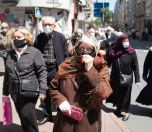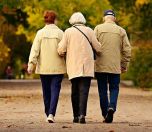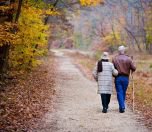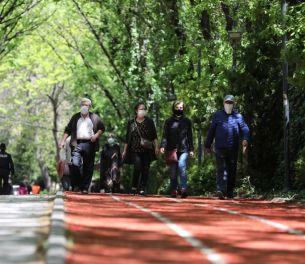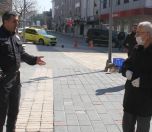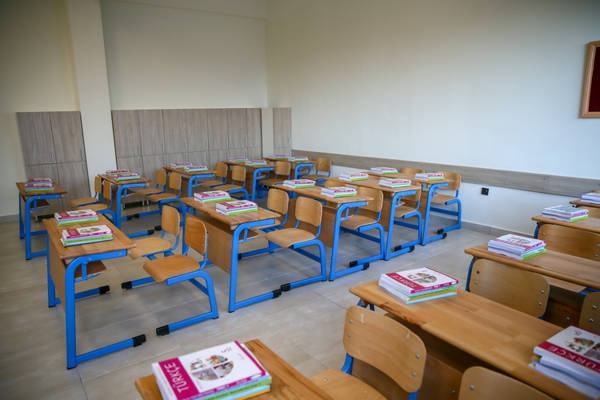* Photo: Pixabay
Click to read the article in Turkish
On March 21, 2020, 10 days after the first COVID-19 case was officially confirmed in Turkey, a curfew was imposed for the elderly. Turkey was the first country which had imposed a ban or quarantine based on age.
Over the past year, several bans and restrictions specifically targeted the elderly such as curfews, intercity travel bans and ban on using public transport. All these restrictions socially excluded and otherized the aged people. They were subjected to hate speech at times.
These measures introduced in an indefinite, unbounded and unchecked manner violated the human rights of the elders.
Even though 80 percent of the citizens aged 65 and over have so far been vaccinated against the virus, the restrictions are still in place.
Before March 2020, when the outbreak officially came to Turkey, elder rights and ageism was not a question of debate in Turkey.
Differentiation between poor, affluent elders
Assoc. Prof. Özgür Arun from the Senex Association for Aging Studies, who is also a faculty member from Akdeniz University, says that "in no period of history were the elders held in high esteem" and adds:
"The elderly who are affluent and occupy a status - mostly men - are known for their success. In fact, the poor - especially poor women - are described through weaknesses, biological losses, their graying hair and loss of youth and beauty. In archetypes about old age, old age and elderly are mentioned with negative images. The current, mostly negative, representation of old age stems from this historical background.
'10 percent of elders mistreated'
"Discriminatory attitudes and behaviors towards the elderly are very common in Turkey's society. Our recent research shows that the rate of elders who are subjected to injustice, who are outcast and mistreated due to their age hits 10 percent. We see that during the COVID-19 pandemic, the inequalities stemming from structural problems have been aggravated. The elderly are subjected to age discrimination more. They are outcast, subjected to violence, negligence and abuse due to their age."
155 elders subjected to violence in March
Arun also gives some examples from the Senex Monitoring Studies, which they have been conducting since January 2021:
"They show in what ways and to what extent the elderly in Turkey are subjected to violence, negligence and abuse. According to the Senex Monitoring Reports, the number of elders who were subjected to violence, abuse and negligence was 133 in January. This number increased to 139 in February and 155 in March 2021. Half of the elders who are subjected to violence, abuse, negligence and violations of rights lose their lives. Most of the elders who are subjected to violence, abuse, negligence and violations of rights and who lose their lives are poor elders.
"All these findings show how deep and common the violations of rights experienced by the elderly in Turkey are. Both central government and local administrations and civil society organizations are obligated to stop violations of rights and prevent violence targeting the elderly."
'Ageism might get more widespread'
There is also some news indicating that some elders have not been vaccinated or do not want to be vaccinated. This news is usually reported through anti-vaccination. Sociologist Prof. Ayşe Gündüz-Hoşgör draws attention to another type of discrimination in this context:
"In the comments made about anti-vaccination in the press in the last few days, it is said that 25 percent of the elderly have not been vaccinated and that they are against vaccination. We are concerned that these news reports, which are not based on any research findings, might make age discrimination against the elders more widespread.
"The findings of recent research conducted by our association draw a different picture. According to a recent research conducted by Mutlu Binark, Özgür Arun, Duygu Özsoy, Beren Kandemir, Gül Şahinkaya with the support of Scientific and Technological Research Council of Turkey (TÜBİTAK), one fifth of the elderly are at risk of poverty, while one third don't have access to information and communication technologies."
Digital inequalities
Underlining that a significant part of the aged live in such deprivation that they cannot make an application for vaccination, Gündüz-Hoşgör says:
"Especially the poor elders in rural areas... The digital inequalities they face prevent them from accessing the Central Physician Appointment System (MHRS) as well. The poor and deprived elders (without a mobile phone, computer; without knowledge about technological devices; unable to access healthcare services) who cannot get an appointment because they cannot access the MHRS cannot get an appointment.
'Discriminatory narratives in the media'
"We need to be careful about age discrimination in the news reported in the media. Taking the above findings into consideration, I think that there is something beyond anti-vaccination in the specific case of elders, especially for the elders living in rural areas and without digital capital.
"If we consider their social class, gender and age intersectionality, we can say that poor aged women are in a more disadvantageous position. The regional differences must also be kept in mind.
"For instance, in the Black Sea region's sparsely populated mountain villages... How will a woman living there get an appointment? How will she go to the health clinic to be vaccinated? How will she meet the transportation expenses? We need to consider all these sociological points while making a comment about the issue. Moreover, through such news reported in the press, they unfortunately develop a discriminatory narrative against the elders because they are not vaccinated." (AÖ/SD)





.jpg)



